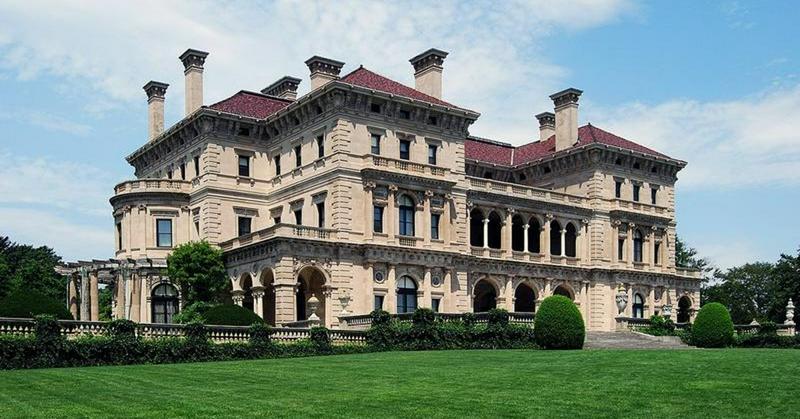What Was The Gilded Age?
By | January 30, 2022

The Gilded Age, known for its opulence, industrialization, and rapid population growth, was an era in American history that lasted from the 1870s to the turn of the 20th century. It was the time of the great so-called "captains of industry" like J.D. Rockefeller, J.P. Morgan, and Andrew Carnegie, who built skyscrapers and railroads and amassed significant wealth. People from all over the world looked to America as the land of opportunity and progress, and immigration skyrocketed as people began moving to the States in droves.
If you scratch the surface, however, you'll find that all that glittering wealth was just a thin veneer covering severe inequality and labor conflicts (hence the "Gilded" Age rather than "Golden"). While the G.D.P. soared, the rapid industrialization responsible for it only benefited a very few elites who used ruthless and sometimes violent tactics to monopolize their industry, earning the "captains of industry" another, less savory nickname, the "robber barons."

For example, Cornelius Vanderbilt was viewed quite negatively in his time due to his monopolization of the Western railroads, which allowed him to underpay and abuse employees who had few other alternatives while charging outrageous prices to customers who likewise had little other means of transportation. While men like Vanderbilt dined on the finest foods and lived in elaborately designed mansions, most of his workers struggled to feed themselves and often lived in deteriorating and cheaply made tenement housing. Journalists and writers began commenting on the state of the class divide, most notably with Mark Twain coining the term "Gilded Age" in his satirical novel, The Gilded Age: A Tale of Today, and Upton Sinclair's The Jungle, which detailed the inhumane and unsanitary conditions of the meatpacking industry.
The wealthy elite tried to dissuade political efforts to end their monopolies, calling the investigative journalists "muckrakers" and claiming that the working class's struggle was a product of social Darwinism, a defunct misinterpretation of Darwin's evolutionary theory which claimed that poverty resulted from inferiority and not any systemic power disparities. Although some efforts were made on the part of the government to quell class warfare after riots like that in Haymarket Square in 1886, such as the 1890 passage of the Sherman Antitrust Act that theoretically outlawed monopolies, politicians were mostly happy enough to look the other way so long as the robber barons continued lining their pockets.

It all ended, as so many things and animals did, with Theodore Roosevelt, who became president following the 1901 assassination of William McKinley. He ushered in the Progressive Era, which bolstered the rights of the working class, made way for unionization, and came down hard on the shady business tactics and political corruption which had dominated the previous 30 years. Roosevelt promised a "square deal for all," averted a major coal strike in 1902, passed the Pure Food and Drug Act to protect Americans from disease and misbranding, and regulated railroads, among many other achievements.

